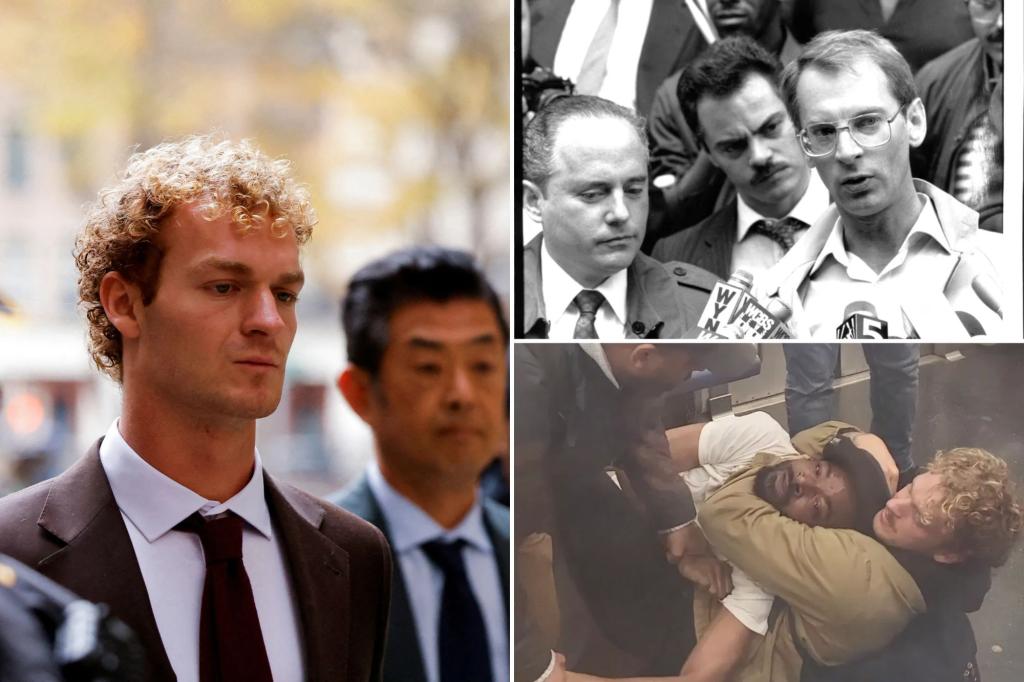Bernie Goetz, infamous for his 1984 subway shooting of four young men, views the Daniel Penny case as a stark reflection of a broken legal system and political maneuvering. Thirty-nine years after his own controversial encounter on a New York City subway train, Goetz sees a parallel between his experience and Penny’s, labeling both situations as “BS” driven by political agendas rather than a genuine pursuit of justice. He criticizes the legal process as “lawfare,” designed not to protect the public but to enforce the will of those in power, mirroring his belief that his own prosecution was politically motivated by then-Governor Mario Cuomo’s presidential ambitions. Goetz maintains that his actions, and subsequently Penny’s, were unfairly scrutinized and politicized, highlighting what he perceives as a systemic flaw in the pursuit of justice.
Goetz contends that both cases were driven by political motivations, deviating from the principle of a “truth-seeking process.” He accuses the legal system of being manipulated to advance political agendas, asserting that his own case and Penny’s were subjected to “lawfare” to impose the will of the ruling class rather than to protect the public or seek truth. He believes his outspoken criticism of the New York government’s handling of crime in the 1980s, contradicting then-Governor Mario Cuomo’s portrayal of successful poverty reduction policies, directly contributed to his prosecution. Similarly, he views Penny’s prosecution as a politically charged event, reflecting a pattern of legal manipulation for political gain.
Goetz draws a direct connection between his vocal criticism of the New York government’s inaction on crime and his subsequent prosecution, suggesting a retaliatory motive behind the legal proceedings. He argues that his public statements, which challenged Governor Cuomo’s narrative of successful social policies, painted him as a threat to the political establishment, leading to his prosecution. Goetz believes his case served as a means to silence dissent and uphold the government’s image, rather than a genuine attempt to administer justice. This reinforces his view of the legal system as a tool for political manipulation.
Comparing the subway environment of the 1980s to the present day, Goetz claims the 1980s were significantly more violent, characterized by a higher prevalence of crime and a larger proportion of the population engaging in predatory behavior. He attributes this to a “poorer society” and argues that his case exposed the failures of New York City in addressing the crime problem effectively, highlighting the government’s incompetence and corruption. This context, he suggests, is crucial to understanding his actions and the climate of fear that permeated the subway system during that era.
Reflecting on Penny’s acquittal, Goetz expresses relief while also acknowledging the profound impact the ordeal will likely have on Penny’s life. He anticipates that Penny will gain a deeper understanding of the complexities and often-unseen machinations within high-profile legal battles. Goetz believes that this experience, though undoubtedly challenging, may offer Penny valuable insights into the workings of the legal system and the political influences that can shape its course. He suggests that this newfound awareness may inform Penny’s perspective moving forward.
In conclusion, Bernie Goetz views the Daniel Penny case as a contemporary echo of his own experience, highlighting what he sees as the persistent manipulation of the legal system for political purposes. He condemns the prosecution of both himself and Penny as “BS,” driven by political agendas rather than a genuine pursuit of justice. He maintains that his outspoken criticism of the New York government in the 1980s contributed to his own prosecution, mirroring his belief that Penny’s case was also politically motivated. While acknowledging the differences in the specific circumstances, Goetz emphasizes the underlying similarity: individuals caught in the crosshairs of a legal system he perceives as being readily exploited for political gain. He believes both cases expose a fundamental flaw in the pursuit of justice, where political expediency overshadows the pursuit of truth and fairness.










